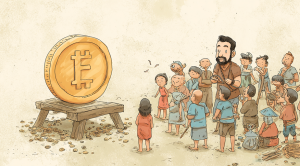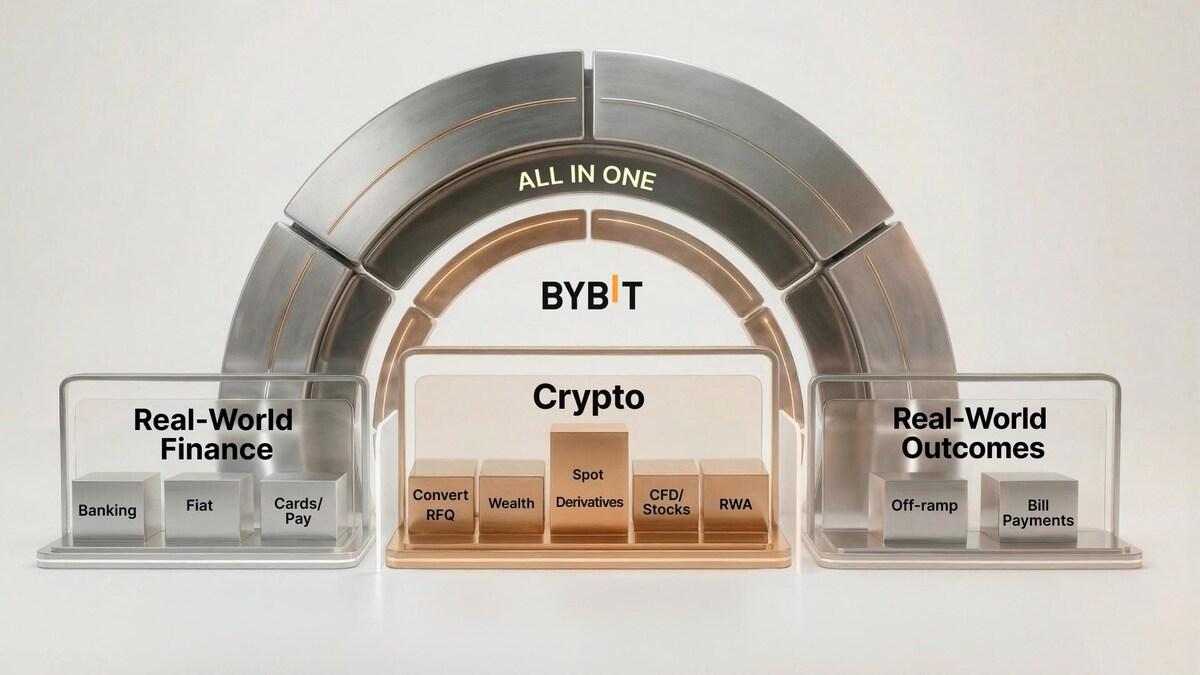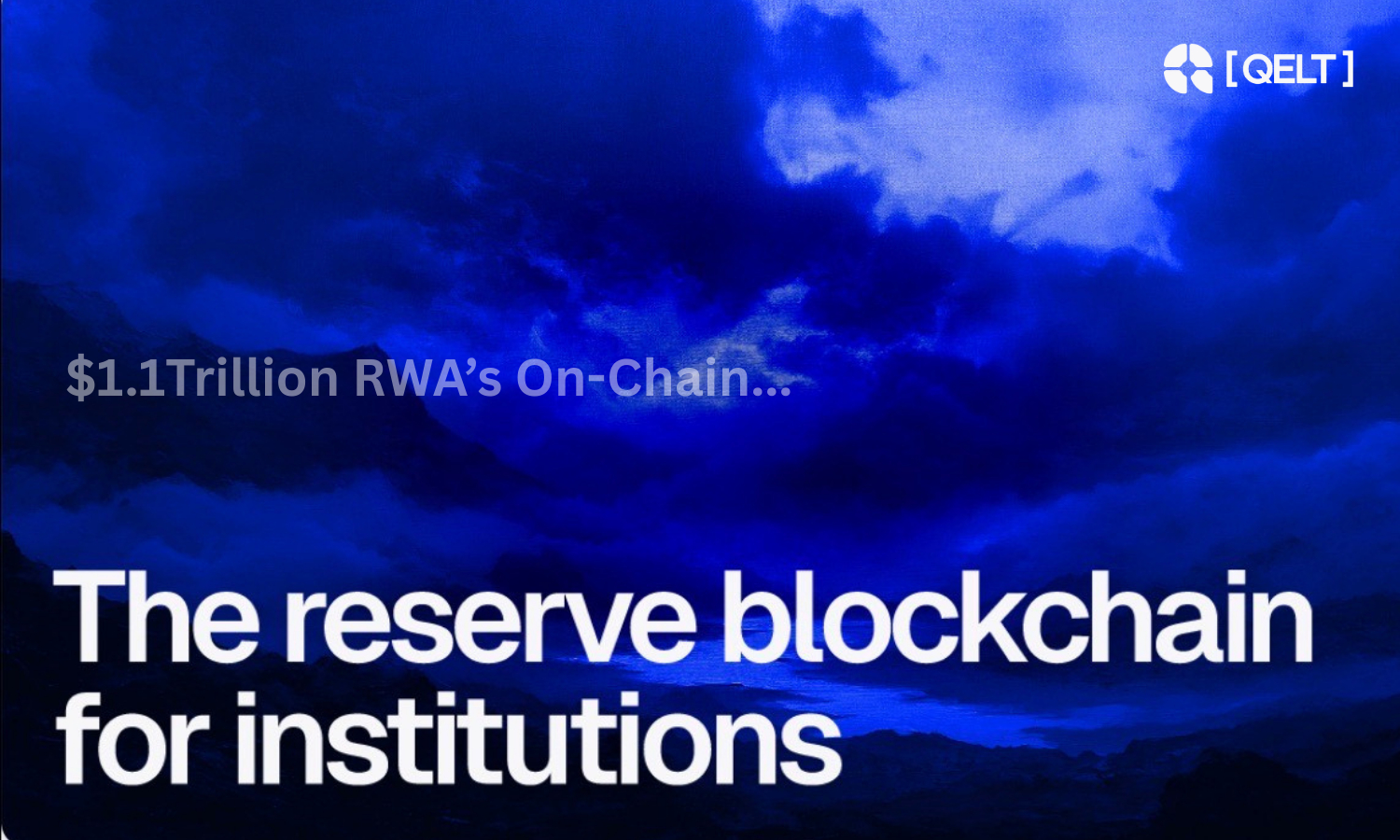Real world asset (RWA) is a concept that was born a long time ago when it was associated with blockchain technology, and its development received much attention. The DeFi market has had strong development with real world asset trends recently. Let’s explore the gems of this RWA niche with Coincu.

Real World Assets: Bridging TradFi and DeFi
Since its inception, real world assets (RWAs) have been the intermediate bridge between already-existing traditional financial markets (TradFi) and the emerging field of decentralized finance (DeFi) in efforts to expand the applicability and total resources for liquid markets.
Without any doubt, real world assets are going to be as important as one of the main trends in the next bull market. Before this, the RWA space was currently hitting milestones for timing. Just to note, this isn’t an STO. Instead, it marks the Spark Tokenization Grand Prix event on August 12, which will have as its goal to tokenize $1 billion of real world assets.
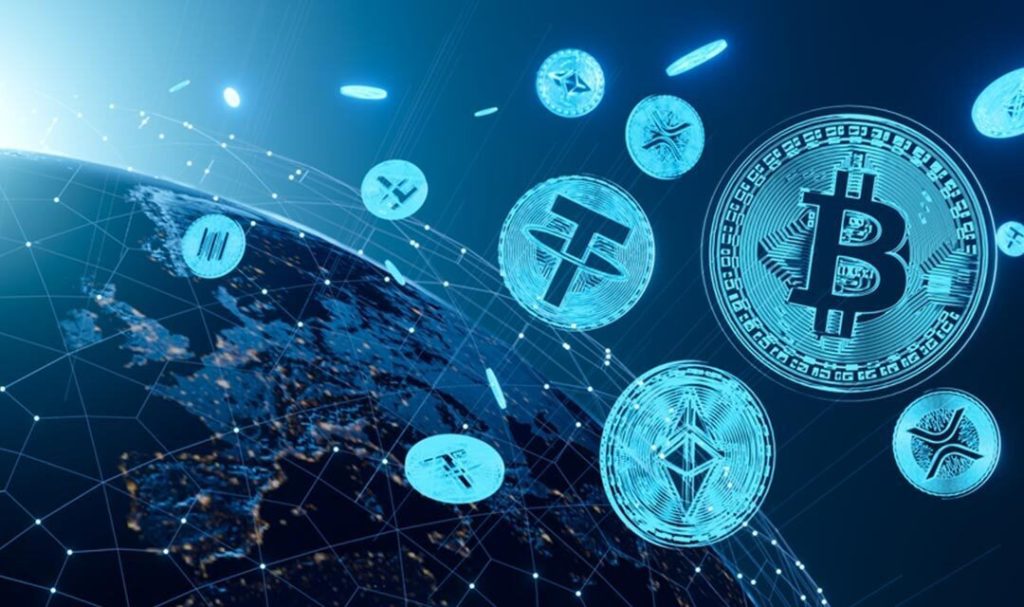
In that sense, during the recent days, new hidden STOs are not being featured. Nevertheless, according to funds flowing into projects, Tier-1 projects with big backers/partners usually follow the price movements first.
Projects like Chainlink, Ondo, and Mantra already have the support of traditional giants, such as SWIFT, BlackRock, and MAG. They all offer some type of RWA products, enjoying definitely not these very same traditional investment flows by institutions particularly from spot ETFs.
Read more: Real World Assets (RWA) And Applications In Blockchain
Which projects are most likely to yield high profits? Let’s find out together.
Stablecoins
The very first forms of real world assets are, in fact, the early stablecoins born in the early crypto market days; among them are USDT and USDC.
Because of this very nature in holding a stable value pegged to some fiat currency like the USD at $1, they easily gained adoption and added further liquidity into the markets.
Stablecoins have shown quite nicely how an effective medium of exchange works. Their success paves the way for the RWA era.
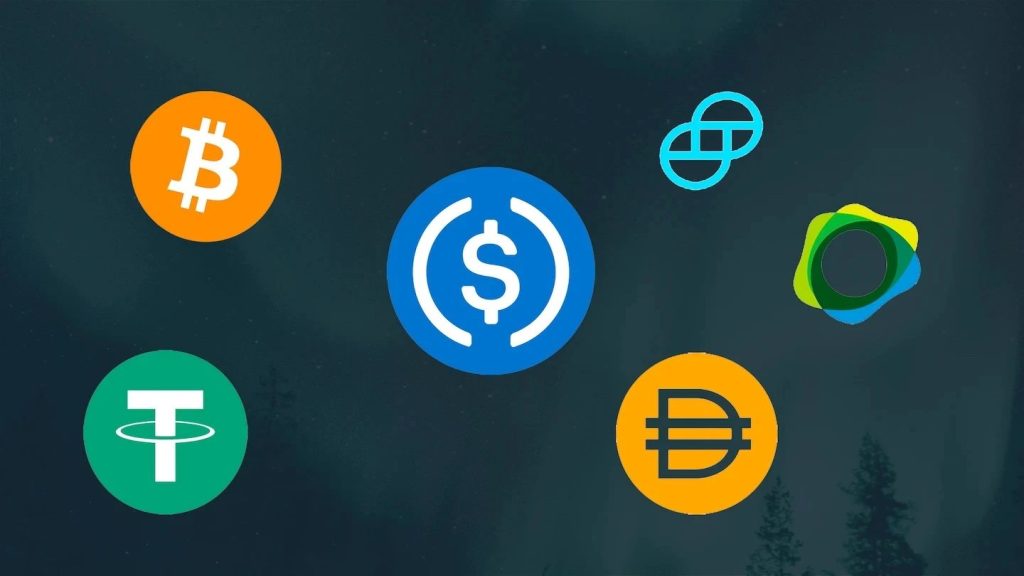
Next to USDT and USDC, the new wave is yield-bearing stablecoins—like the sDAI of MakerDAO and Ethena Labs’ sUSDe. The yield-bearing stablecoins will be developed in three main directions:
- Yield from staking: like sDAI
- Yield from deposits and bonds, such as Ondo’s USDY
- Yield from structured strategies, such as Ethena’s USDe from yield while staking ETH and funding rates
After stablecoins, many other real world asset sectors continue to be explored, though this concept is often highlighted during market downtrends.
Read more: MANTRA Review: Layer 1 supports Real World Assets
Real World Assets
Had you ever borrowed from the traditional market, you would have known how much it is time-consuming, takes a lot of paperwork, and sometimes depends on the credit limit of every bank. However, DeFi and RWAs are trying to change that.
Estimates by the IMF approximate that DeFi platforms incur costs running at half that of a bank and as low as one-fifth of some other funding sources. This benefit will sustain its strong growth in the future.

Moreover, blockchain and smart contracts support automation and simplification of procedures, risk minimization, and transparency. It will create a login experience like banks’ applications while being combined with Account Abstraction and Social Recovery. The ability to access large capital sources globally enhances liquidity.
Another application, which recently drove the RWA wave, was access to financial products such as U.S. Treasury bonds. It is a kind of financial product that people do not often have the opportunity to deal with in the traditional market.
Read more: Best Real World Assets Tokens To Watch in 2024!
Private Credit & Treasuries
Private credit and treasuries have garnered significant attention recently, both in terms of media coverage and growth rates.
Private Credit
Even during downtrends, private credit has maintained strong growth.
Centrifuge is a pioneering project in real world assets, working closely with MakerDAO to develop private credit in emerging markets (EM), where capital is scarce.
Emerging markets in Southeast Asia and Africa, particularly those facing capital shortages after financial downturns, are the primary focus of these funding efforts.
Among the projects in this field, such as @centrifuge, @goldfinch_fi, @Figure@Credix_finance, @maplefinance, @ClearpoolFin, @homecoinfinance, @TrueFiDAO, @helix_finance and @goldfinch_fi has demonstrated the most efficient capital utilization with nearly 100% of loans active and an APY of approximately 14%.
Read more: How Are Real World Assets (RWAs) Integrated Into Defi Protocols?
Treasuries
By 2023, tokenized treasury bonds have emerged as a phenomenon, with notable projects like @OndoFinance, @matrixdock, Backed Finance, @SwarmMarkets, Franklin Templeton’s Benji application, @FTI_US, @OpenEden_Labs and @maplefinance.
In times of financial difficulty, safe assets like treasury bonds remain profitable, becoming a preferred investment channel for many institutions and investors, particularly U.S. Treasury bonds.
Why Choose Tokenized Treasury Bonds Over Traditional Markets?
- Tokenized treasury bonds target people who have a significant amount of assets or investment funds and are looking to make a shift into much safer assets, reducing intermediary fees in transfers between the crypto and traditional markets.
- These bonds further resonate within portfolio management strategies of arbitraging between CeFi and DeFi price differences for some investment funds.
- Via its USDY, Ondo is opening up access to U.S. Treasury bonds for individual and small investors around the world, which was not previously possible within traditional markets.
BUIDL from BlackRock and FOBXX from Franklin Templeton are currently the leading products, although they primarily focus on a small group of professional and institutional investors.
Conversely, ONDO’s launch of market-responsive products and partnerships with major players like BlackRock, PIMCO, Morgan Stanley, and a strong development team have positioned the project as a leader in the real world asset trend. It has also garnered community attention for its accessible products.
Securitize, Hashnote, and MidasRWA are other projects to watch in this sector.
Read more: Top 5 Notable Real World Assets Crypto Projects In 2024
Upcoming Real World Asset Trends
Continuing the development of Stablecoins, Private Credit, Treasury Bills, and some other real world asset trends are also quietly taking place.
Trade Financing
This is a crucial yet often overlooked segment in traditional markets, valued at an estimated $15 trillion. Some projects currently developing in this sector include @Polytrade_fin, Harbor, Defactor, and Console Freight.
Read more: Real World Asset (RWA) Tokenization And Risks To Solve
Bonds
Tokenization helps break bonds into smaller units, hence making them more accessible to investors and reducing intermediaries in trading that increase the liquidity of the market. Blockchain technology enhances transparency and security. However, this field is more challenging to manage as compared to Treasuries and requires robust legal frameworks for development.
Notable projects include @BackedFi, @opentrade_io, Obligate, PV01, @SwarmMarkets.
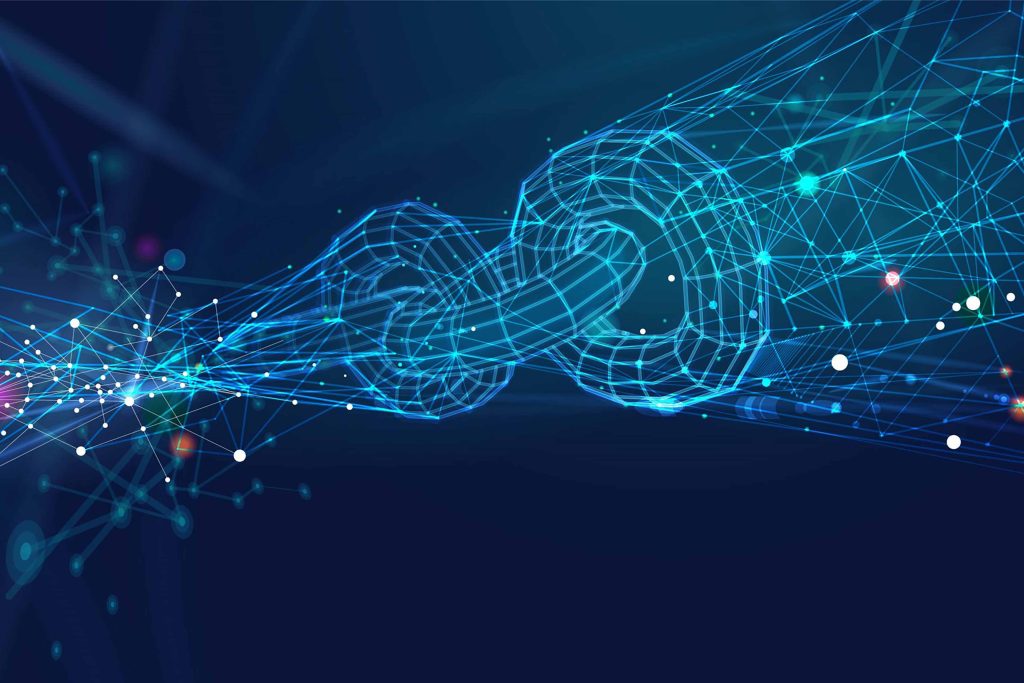
Read more: Real World Assets Tokenization: A Deep Dive Analysis!
Real Estate
Real estate is arguably the most fertile and, at the same time, a complex domain that needs to be tokenized. The approximate current value of assets in this domain is $326 trillion—larger than both the stock market and capital markets.
At a high level, the tokenization of real estate will drastically increase its liquidity, especially in high-end properties. However, the legalities involved are most complex, and the answers will probably appear through several market cycles until mass adoption is reached.
Due to its appeal and the vast market size, this sector has attracted numerous projects such as @Parcl, @PropyInc, @RealTPlatform, @mattereum, @tangibleDAO, LiquidFi or Robinland, Figure, Mili, Labs Group, Roofstock, CitaDAO…
Carbon Credit and Agriculture – Green Solutions
ReFi, or regenerative finance, addresses sustainability issues and restores natural environments by building high-fidelity oracle networks. As new ecological assets are created and transaction volumes increase, the resultant financial benefits will drive ecological improvements.
@weareflowcarbon is a notable name that appeared in the previous cycle with $70 million raised from top market funds like a16z. Other notable projects are @ToucanProtocol, @regen_network, Frigg, and Helios.
Agriculture is an industry of enormous size that has hardly been touched by technology or finance. This holds all the more for emerging markets where access to capital by small-scale farmers is very minimal.
Many innovations are taking place in the RWA fields of agriculture, rural development, and farming, with multiple projects classified as ReFi, emerging markets, and insurance. These protocols can easily be viewed as agricultural protocols, such as @landxfinance and @agrotoken.
Conclusion
Real world assets have been, and still are, an intermediate step between traditional financial markets and decentralized finance, increasing applicability to attract liquidity for the entire market.
We stay positive regarding RWAs—particularly private credit and treasury-related products—and some infrastructure projects that will be discussed in another analysis.
Although, presently, real world asset product directions may seem new and less attractive to the majority, persons who grasp this trend will find it to be a million-dollar opportunity.
| DISCLAIMER: The information on this website is provided as general market commentary and does not constitute investment advice. We encourage you to do your own research before investing. |














